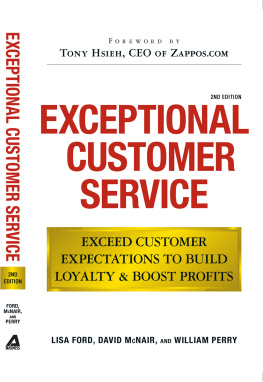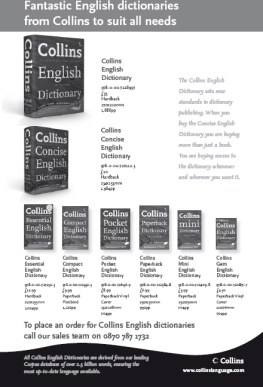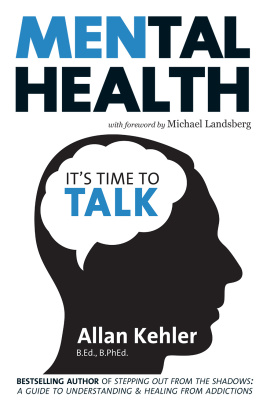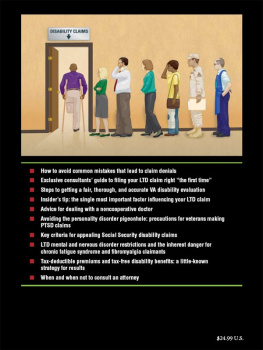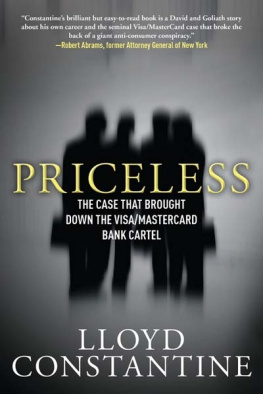TOUGH CUSTOMER
TOUGH CUSTOMER
Chasing a Better Deal for Battlers
ALLAN FELS

To Isabella and Teresa
MELBOURNE UNIVERSITY PRESS
An imprint of Melbourne University Publishing Limited
Level 1, 715 Swanston Street, Carlton, Victoria 3053, Australia
www.mup.com.au

First published 2019
Text Professor Allan Fels, 2019
Design and typography Melbourne University Publishing Limited, 2019
This book is copyright. Apart from any use permitted under the Copyright Act 1968 and subsequent amendments, no part may be reproduced, stored in a retrieval system or transmitted by any means or process whatsoever without the prior written permission of the publishers.
Every attempt has been made to locate the copyright holders for material quoted in this book. Any person or organisation that may have been overlooked or misattributed may contact the publisher.
Cover design by Philip Campbell Design
Cover image by Ray Strange/Newspix
Typeset in Janson 11/17pt by Cannon Typesetting
Printed in Australia by McPhersons Printing Group

9780522874419 (paperback)
9780522874426 (ebook)
Contents
Preface
T his book is about matters I have been involved in since finishing as chair of the Australian Competition and Consumer Commission (ACCC) in 2003.
The issues are diverse: my daughter Isabellas mental illness and the reform of mental health; deregulating taxis and paving the way for Uber; trying to halt the exploitation of migrant workers; introducing a system to restrain executive pay; training top public sector leaders; training senior Chinese Communist Party leaders; and further work on competition law.
In this book I ask: how do you go about dealing with such diverse and difficult issues? I believe there are three common themes:
What should you do? What is the right thing to do in all the circumstances? What is in the interests of the community as a whole? In short, what constitutes public value?
What may you do? You may have your own views on what ought to be done, but you cant act without having some form of legitimacy and authority. What you are allowedor mandatedto do depends upon the authorising or political environment. What drives it? What does it require of you? How do you deal with that environment?
What can you do? Unfortunately the best sounding, most legitimate outcomes may not be achievable in practice. What is possible and achievable on the ground, having regard to the resources, skills, knowledge and legal power available? And how do you gain support from people and organisations that can help? How can you harness the support of co-producers of the public value you seek to achieve?
I also ask whether the policy beliefs I had at the ACCCin particular a belief in applying the law properly to promote competition and consumer choicestand up well or not in these different settings. In the ACCC setting, I believed if there are losers from change, you rely on a social safety net for themusually in the form of monetary payments. It is not so simple in dealing with mental illness, as I discuss in the opening chapter, nor with taxi drivers threatened by taxi reform, nor with underpaid migrant workers. And does more competition make banks act ethically, or the reverse? Have my policy beliefs needed to change in the light of experience? Have I found the right balance between being a hard-headed economist and a soft-hearted father and advocate for battlers?
These questions are important and interesting and I hope my answers are too.
I would like to thank Lucinda Schmidt for her help with this book.
MENTAL ILLNESS
A challenge for my family and a problem for Australia
T he hardest thing Ive ever had to do was consent to my mentally ill daughter undergoing electroconvulsive therapy (ECT). Id had plenty of tough times as head of Australias competition regulator for twelve years, including being called a Nazi and being relentlessly attacked by big business. This was much tougher.
Isabella was diagnosed with schizophrenia at age twenty-five and managed to control or suppress it quite well with medication. But twelve years later she suffered a severe psychotic episode. On a bleak autumn day at Melbournes Alfred Hospital, my late wife, Isabel, and I accepted the need for ECTa decision made more difficult by the harsh depictions of it we had seen in movies such as Ken Loachs Family Life and Milos Formans One Flew over the Cuckoos Nest.
Even though Im a naturally calm and unemotional person, that decision was gut-wrenching. Isabel, though very concerned, was more philosophical. She had seen every day for weeks the extraordinary condition Isabella was indelusionary, suffering hallucinations, unable to grasp reality, and convinced she was acting out a television program. Top psychiatrists were unable to stop her psychosis with medication. Isabel also knew of a case in her native Spain where ECT had worked to snap a depressed person out of a deep psychosis. What neither of us realised at the time, however, was that our daughters many weeks of psychosis would continue to affect her for years to come, despite the effectiveness of the ECT.
Now, Im pleased to say, Isabella lives semi-independently not far from me in inner Melbourne and is a published writer. Shes a lovable, pleasant, charming, sensitive, articulate and intelligent personalthough she will never be cured in the conventional sense and requires continual medication and much support. She often has a distorted and confused perception of reality, strange obsessions and weak motivation. Because of her disorganised mind, her living skillscleaning, cooking and so onare poor and she needs help to cope. She also has a serious shopping addiction that has caused much angst over the years.
Isabellas illness means that, both as a father and as an economist, I am passionate about mental health policy and how Australiaand the worldcan do much, much better. Policies like early intervention, suitable housing and reducing the stigma of mental illness have been a big focus for me since I left the Australian Competition and Consumer Commission (ACCC) in 2003. Ive spent easily a day a week for the past decade working on mental health issues, including helping to set up five housing projects and chairing the National Mental Health Commission for six years. And now I am a commissioner for the Royal Commission into Victorias Mental Health System.
None of that compares with the lived experience of having a family member with a severe and incurable mental illness. No amount of research, economic arguments or policy debates can substitute for what our familyand millions of other familieshas gone through in real life.
Isabella
When Isabella was about eighteen months old, Isabel and I started to worry about her. She was withdrawn in the company of other children and behaved eccentrically; by the age of three she had developed bald patches where shed torn her hair out, and she sometimes chewed on cigarette butts.
Like many parents with challenging children, we hoped this disturbing behaviour was just a passing phase and shed grow out of it once she went to school. Rather, Isabellas school years were some of the worst for her and our family, especially when she was a teenager. I look back on them now and feel sad for her suffering. Isabella switched school twice but always ended up being bullied and ostracised. The other kids would imitate her and make fun of her eccentric behaviour and nervous gestures. She was desperate for attention and would break out laughing in a quiet classroom or even at school assembly. At one stage, she became obsessed with another student and as a weird joke ordered a truckload of ready-mixed cement to be delivered to the girls house. We were constantly dreading phone calls from teachers about what had happened that day.
Next page

